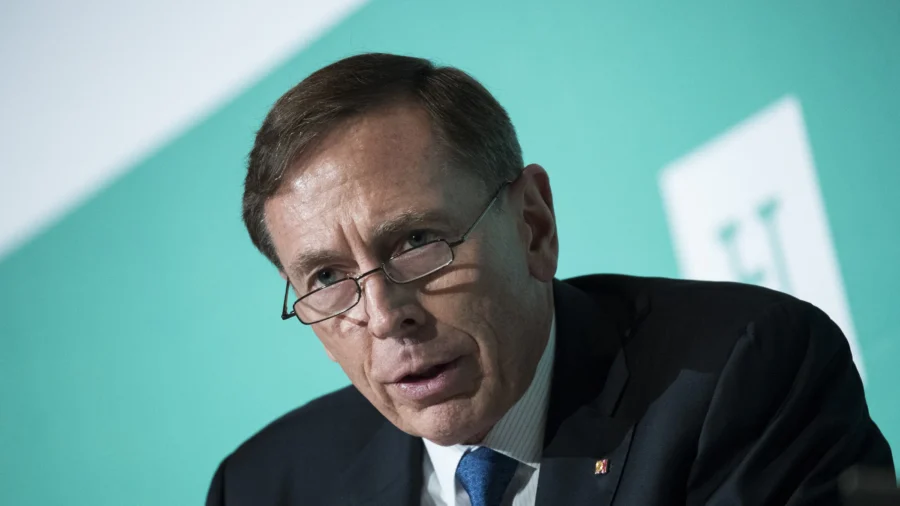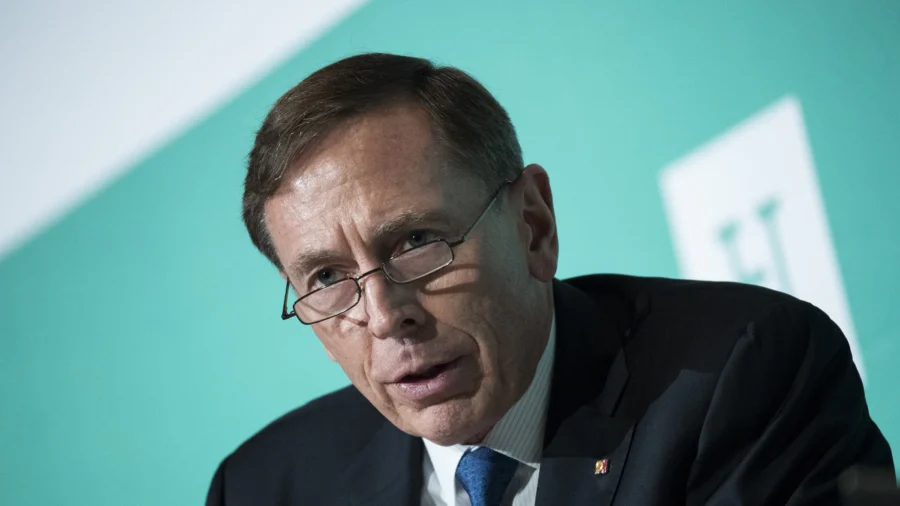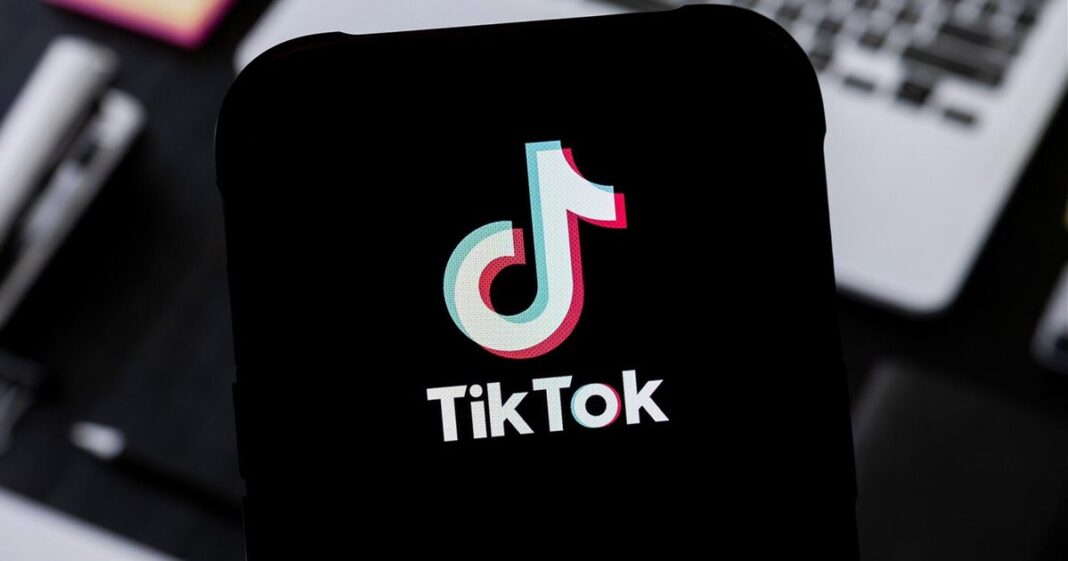
ASPEN, Colo.—As sectarian violence continues across Syria following Bashar al-Assad’s fall from power, retired U.S. Army Gen. David Petraeus believes warlord-turned-interim president Ahmed al-Sharaa can still prove to be the right man to unite the war-ravaged country.
More recently, Sharaa has presented himself as a moderate who can smooth over religious and ethnic divisions throughout Syria and avoid conflict with its neighbors.
Speaking with The Epoch Times on the sidelines of the Aspen Security Forum on July 18, Petraeus advocated that the United States give Sharaa “every chance to show that he is going to do what he has said he’s going to do.”
Petraeus did not dismiss Sharaa’s past.
“He’s an alumnus of, again, Camp Bucha, the detention facility in southern Iraq, during the time that I was the commander of the surge,” Petraeus said.
Petraeus was the commander of the U.S. Central Command from the fall of 2008 to the summer of 2010, overseeing operations across the Middle East. He would later serve as the director of the Central Intelligence Agency.
While Sharaa has distanced himself from his extremist past, Syria continues to see sectarian violence under his watch.
The Trump administration has expressed disapproval over the recent Israeli military actions in Syria.
Rep. Joe Wilson (R-S.C.), a co-chairman of the Helsinki Commission, which monitors human rights around the world, also called for Israel to cease its strikes in Syria this week.
Meanwhile, Sen. Thom Tillis (R-N.C.), another Helsinki Commission member, expressed concerns about what Sharaa’s leadership means for human rights and religious freedom in Syria. Speaking with The Epoch Times on July 16, Tillis said the current conditions in Syria appear to be “a different kind of bad” as compared to conditions under Assad.
“On the ground, I doubt seriously if it’s materially better, and people are feeling safer in terms of expressing their own religious point of view,” Tillis said.
Amid these concerns, Petraeus said the U.S. government should continue to give Sharaa a chance, but also exercise caution and apply pressure to keep the new Syrian leader on track.
“We should also be watching—should be riveted on this—and exercising the influence that we have to encourage [Sharaa] to indeed do exactly what it is that he has said he wants to achieve,” Petraeus said.
Nathan Worcester and Evgenia Filimianova contributed to this report.


